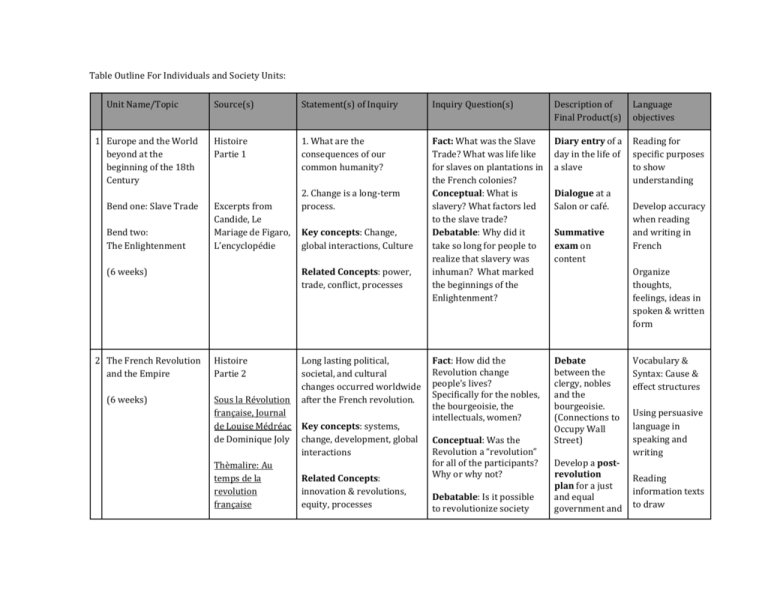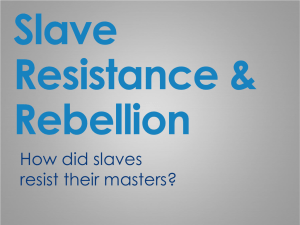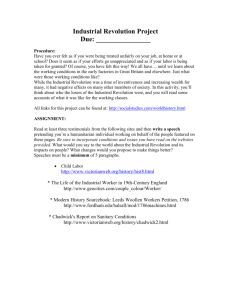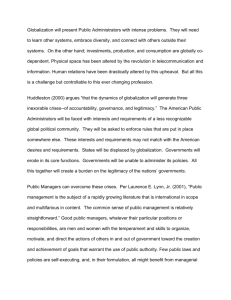Table Outline For Individuals and Society Units: Unit Name/Topic
advertisement

Table Outline For Individuals and Society Units: Unit Name/Topic 1 Europe and the World beyond at the beginning of the 18th Century Bend one: Slave Trade Bend two: The Enlightenment Source(s) Statement(s) of Inquiry Inquiry Question(s) Description of Final Product(s) Language objectives Histoire Partie 1 1. What are the consequences of our common humanity? Fact: What was the Slave Trade? What was life like for slaves on plantations in the French colonies? Conceptual: What is slavery? What factors led to the slave trade? Debatable: Why did it take so long for people to realize that slavery was inhuman? What marked the beginnings of the Enlightenment? Diary entry of a day in the life of a slave Reading for specific purposes to show understanding Fact: How did the Revolution change people’s lives? Specifically for the nobles, the bourgeoisie, the intellectuals, women? Debate between the clergy, nobles and the bourgeoisie. (Connections to Occupy Wall Street) Excerpts from Candide, Le Mariage de Figaro, L’encyclopédie (6 weeks) 2 The French Revolution and the Empire (6 weeks) 2. Change is a long-term process. Key concepts: Change, global interactions, Culture Related Concepts: power, trade, conflict, processes Histoire Partie 2 Sous la Révolution française, Journal de Louise Médréac de Dominique Joly Thèmalire: Au temps de la revolution française Long lasting political, societal, and cultural changes occurred worldwide after the French revolution. Key concepts: systems, change, development, global interactions Related Concepts: innovation & revolutions, equity, processes Conceptual: Was the Revolution a “revolution” for all of the participants? Why or why not? Debatable: Is it possible to revolutionize society Dialogue at a Salon or café. Summative exam on content Develop accuracy when reading and writing in French Organize thoughts, feelings, ideas in spoken & written form Develop a postrevolution plan for a just and equal government and Vocabulary & Syntax: Cause & effect structures Using persuasive language in speaking and writing Reading information texts to draw and not just come full circle? societal structure: “Une Nouvelle France” conclusions Informational Essay on the causes, manifestations, and consequences of the revolution. 3 The 19th century political evolution of France & Colonisation (6 weeks) Histoire Partie 3 Thèmalire: Au temps des colonies Geographical explorations connected the world, establishing global interactions. Key concepts: causation, identity, change Related Concepts: power, culture, equity Factual: How and why were certain countries colonized? Conceptual: What were the effects of colonization in the French Antilles? Debatable: Should French Departements become sovereign nations? Who should decide? Informational Poster & Essay: La Martinique, La Guadeloupe, Haïti, Saint Martin, etc. Summative Exam on content Organize thoughts, feelings, ideas in spoken & written form Reading information texts to draw conclusions 4 Migrating Peoples & human mobility (6 weeks) 5 The US as a superpower (3 weeks) Géo Partie 1 Migration is a response to human circumstances and challenges. Fact: For which reasons do people migrate? Etrange étrangers et autres poèmes de Jacques Prévert Key concepts: causation, change, perspective Enfants ici, parents d’ailleurs de Carole Saturno Related Concepts: migration, sustainability, identity Debatable: Should there be strict immigration laws? How should countries handle migrating people? Histoire-Géo Partie 2 For complex reasons, the US is a political, economic, and cultural superpower. Fact: In what ways is America a superpower economically, militarily, politically and culturally? Conceptual: How do other countries view our power? Debatable: For how long will we keep our status as a super power? Media: Commercials, advertising, etc. Key concepts: communication, global interactions, development Related Concepts: globalization, power, Conceptual: What are the consequences of migration on societies? Personal Narrative Essay: What is your family’s history? From where did they migrate, and why? Photo documentary: Interview a friend, relative, or acquaintance who recently migrated to New York from a different country. Take a photograph and write up the interview in French. Summative exam on content. Reflective Essay: Write a letter from the point of view of a 12year-old Advanced Interrogative phrases Use of appropriate register Writing in the past tense: Passé composé vs. imparfait Develop accuracy when reading and writing in French Use of appropriate register Organize patterns & trends 6 Globalization/America nization/Gentrification (6 weeks) Histoire-Géo Partie 3 Jules en Amérique de Daniel Roulet Globalization is rapidly changing the world, and many languages, cultures, and ways of life are at risk of extinction. Key concepts: connections, communities, identity Related Concepts: globalization, migration, culture, choice Fact: What is globalization and gentrification and their causes? Conceptual: What are the effects of globalization on world cultures? Debatable: Is change inevitable? How can you preserve culture, tradition, and identity while accepting change? growing up in France. How does this child view America’s superpower status? thoughts, feelings, ideas in spoken & written form Summative Exam on content. Use of appropriate register Opinion Essay on the importance (or not) of preserving the Creole language Organize thoughts, feelings, ideas in spoken & written form Video Documentary: The changing demographics of Carroll Gardens.








